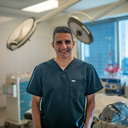This is a great question and capsular contracture is something that I help my patients with in my Bay Area practice frequently. One of the most common reasons for people with implants to have additional surgery is capsular contracture.









